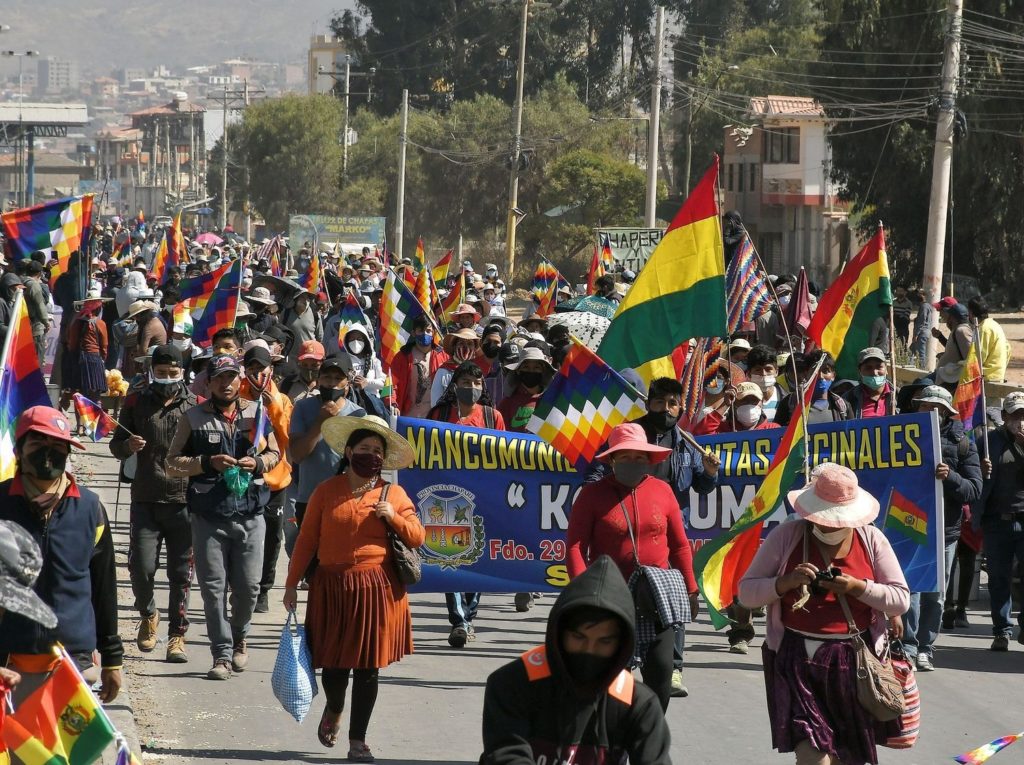RIO DE JANEIRO, BRAZIL – Bolivia’s roads have been blocked in at least 70 locations by groups of farmers protesting against the postponement of elections. The rallies were organized by labor unions that are either sympathetic to or directly linked with the Movement Towards Socialism (MAS), the party of ex-president Evo Morales, the only one advocate of holding the presidential elections on September 6th, the date chosen by Parliament. Alleging health concerns, the Electoral Court deferred voting until October 18th.
The government blamed the blockades for the shortage of oxygen and medication for Covid-19 patients in several cities. “We ask the leaders of the COB (Bolivian Workers’ Center) to think about the damage their measures are causing. I ask them once again to stop the blockade and take care of our people,” tweeted interim President Jeanine Áñez.
The main leader of the protests, the COB secretary-general Juan Carlos Huarachi, who has been criminally prosecuted for having organized the blockades, urged the protesters to allow ambulances, medication, and oxygen to pass. “Our fight is for health, and we can not undermine hospitals,” he said.

According to the representative of a medical oxygen plant located in a rural district of La Paz, the call is not being heeded: the blockades are preventing the company from operating as normal. Huarachi apologized to the population for the “annoyance and inconvenience” that the Electoral Court’s decision to defer the elections has caused to workers and farmers.
Evo Morales, accused by the government of being behind the unions’ actions, called for a dialogue between them and the electoral institution, which “cannot endorse attempts by a de facto government to extend itself and prevent an electoral process”. The Electoral Court and the COB would meet within hours to discuss the election criteria.
The Inter-American Commission on Human Rights expressed on Twitter “its repudiation of any type of blockade of medical teams, clashes and violent incidents against the physical integrity of individuals or against public and private property, as well as the unnecessary and excessive use of public force in Bolivia.” The United Nations office in Bolivia has done likewise.
Blockades have also been widely condemned in the media and social networks, often with racist insults. “Savages”, “Andeans who prefer death to life”, “paid for by the narco-corruption of their chief Morales” and other like epithets were published. The mood on social media is similar to what was observed at the start of the year, when the urban middle classes had not yet split around Áñez’s candidacy and the government administration, and at the time there was consensus against MAS and its leaders.
According to analyst Pablo Stefanoni, “the blockades of social organizations, many of them sympathetic or linked to MAS, show strength in the streets, but undermine the party’s ability to spread to the cities and voters in doubt, who could decide to give MAS a new chance, given the tremendous inefficiency of Áñez’s government. A mere month and a little deferment of the elections does not seem sufficient reason for radical blockades; just when MAS needs to rebuild urban support, these actions show it as insensitive to the emergency of covid-19.”
Source: El País

